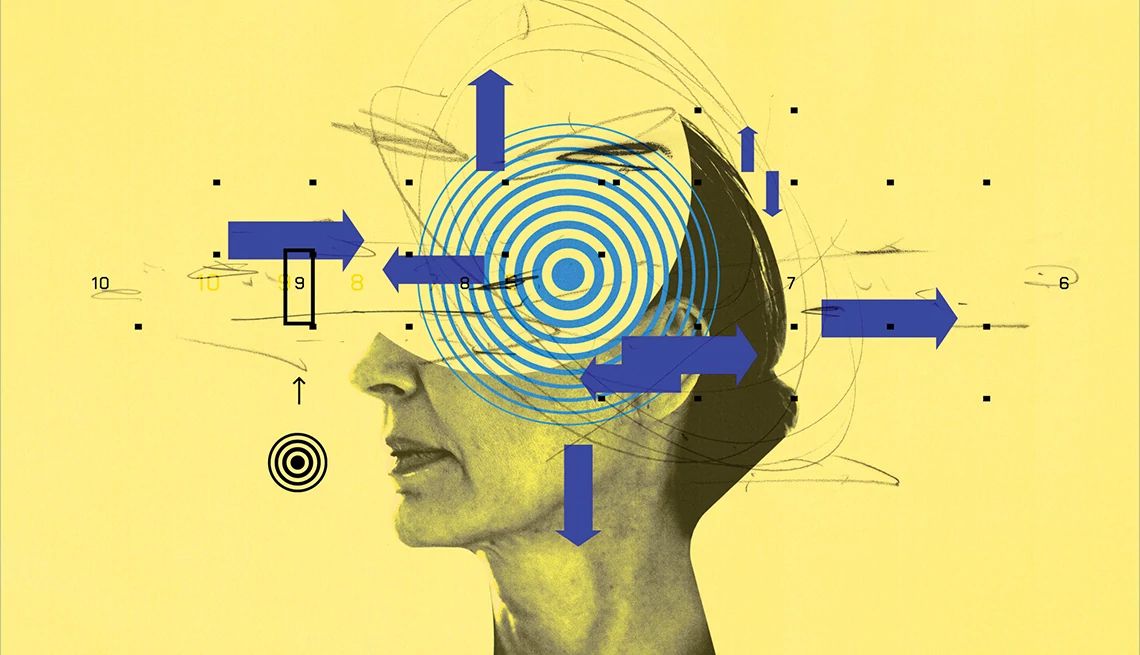AARP Hearing Center


The revelation came a couple of months after my 65th birthday. My husband had died more than a year earlier following a brutal battle with cancer. In the aftermath, I returned to college, having dropped out after my freshman year, 46 years earlier.
I loved being back at school, the same one where I’d started out. But as had been the case all my life, reading was hard.
Three weeks into my first semester, I stayed up late to prepare for my French exam. I felt confident I’d do well.
In class the next day, my teacher handed back my exam: D-minus.
“Have you ever been tested for learning differences?” she asked me.
The last time I was in school, the term “learning differences” didn’t exist. If you did poorly in school, you were stupid, simple as that. As for me, I faked a lot. My shelves were filled with books I hadn’t finished.
My reading difficulties had been my shameful secret. Even more so because I was a writer. How could a person write books if she had difficulty reading them?
I made up for my weaknesses as a student by bringing another set of skills to the table. I could think outside the box. It was trying to stay in the box that felt so difficult and unnatural.
My brain didn’t take easily to words on the page. I’d open a book, and for a few paragraphs I’d be doing fine. Then a thought would come to me. Maybe I’d feel a sudden impulse to ride my bike, play a song, take out my oil pastels and draw. The advent of the internet presented a vast landscape of rabbit holes to explore. Now, in addition to all the other subjects of interest swirling around my head, there existed the option of clicking a button on my laptop and checking out a video of the Beatles’ first appearance on The Ed Sullivan Show, or the work of a painter I loved.
I could hold on to images. It was words — the tools of my trade — that opened the door to a universe of distractions. Words led me to ideas. Ideas didn’t simply land with me, they carried me away.






































































You Might Also Like
Doctor, My Partner Is Having Memory Problems
Unlike other health problems such as hypertension or high cholesterol, memory loss may make us feel as if our very selfhood at risk
AARP Smart Guide to Keeping Your Memory Sharp
22 science-backed ways to growing a healthier, happier brain, now and in the future
25 Great Ways to Boost Energy
You have the power to energize your days. Here’s a long list of ideas